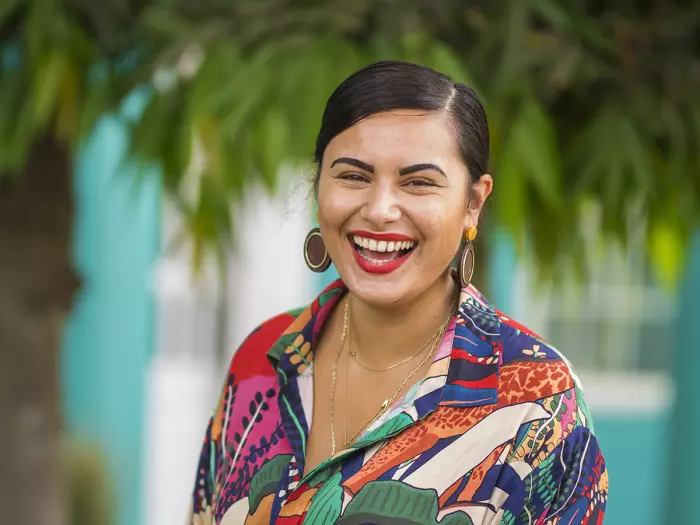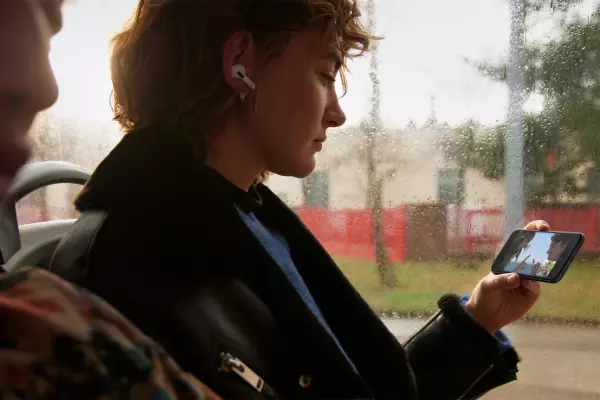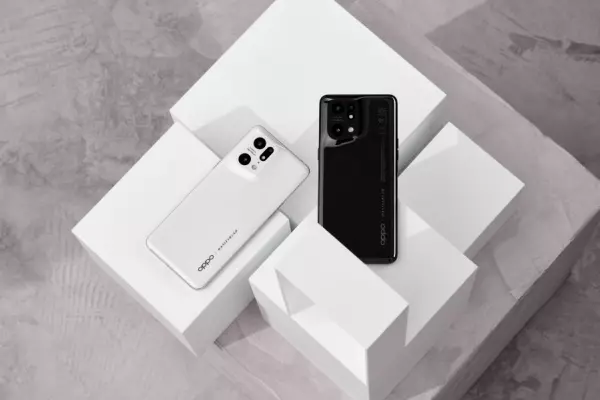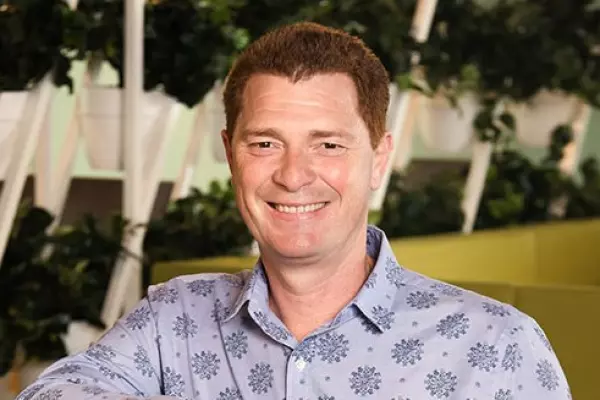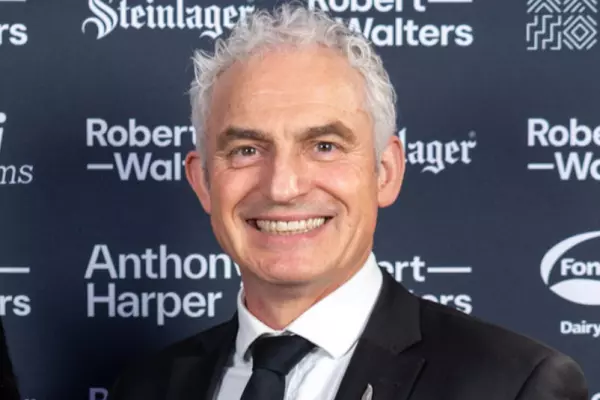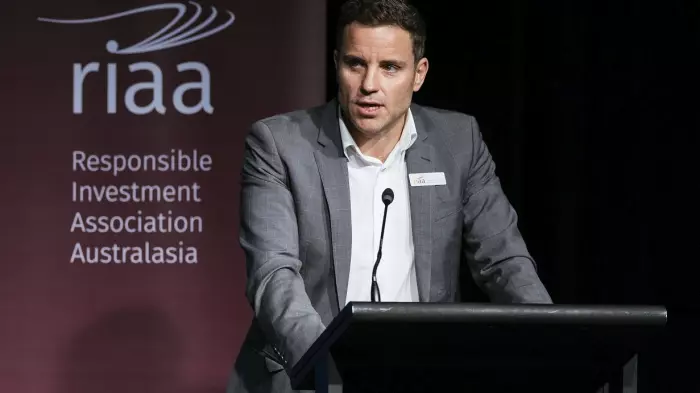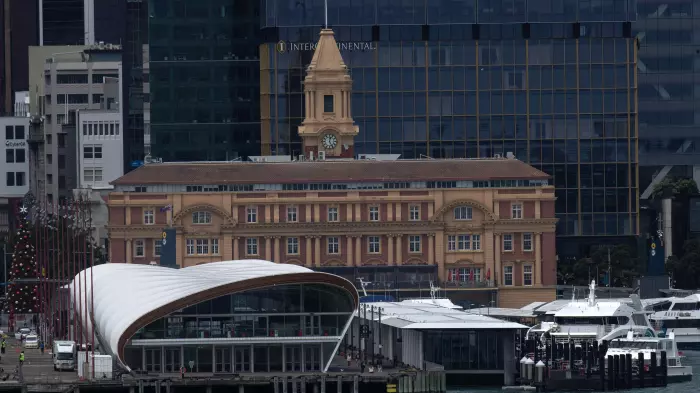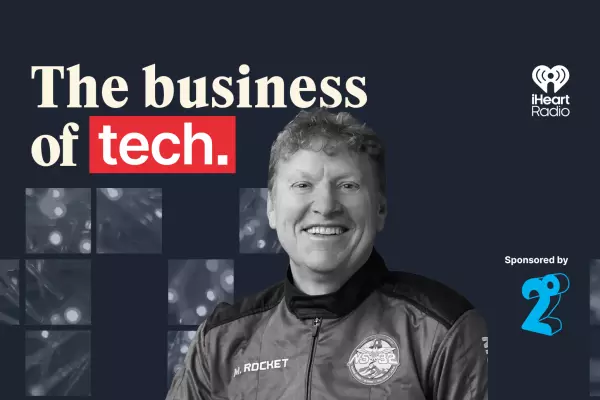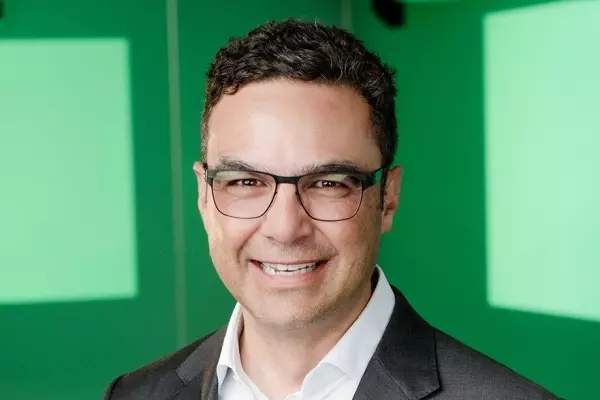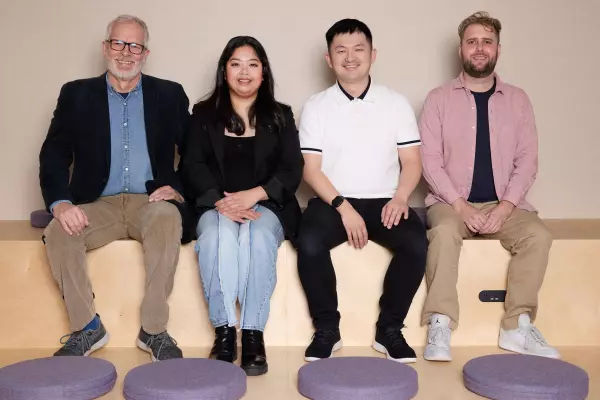The co-founder of PeopleForPeople, an organisation campaigning for digital equity in New Zealand, says many in the technology sector misunderstand the nature of the problem and how to solve it.
At 27, Julia Arnott-Neenee has gone from Auckland to a leading role in a global IT corporate and is back now focused on helping Māori and Pacific people get better access to careers in an industry that currently does not employ enough from those communities.
Early in my interview with Arnott-Neenee, I referred to this problem as New Zealand’s digital divide. She corrected me.
“Virtue signalling, you mean.”
She’s right. Conversations about Aotearoa’s ethnic misrepresentation in the technology industry can often veer towards the hollow, as firms talk of a need for employee diversity but don’t practice what they preach.
She manages to cut through the noise and boil down a real problem into a stark reality.
“The digital divide is only being spoken about in terms of hardware and internet, but that’s not the whole thing. You wouldn’t give somebody a Ferrari and expect them to race in Formula One, so giving somebody a laptop and internet doesn’t mean they know how to best use them.”
Arnott-Neenee is a Kiwi whose return to these shores pre-dates the pandemic, but says she has seen how it has accelerated NZ’s existing inequalities. The government and schools giving out laptops and Wi-Fi helps to an extent, but if people aren’t taught how to use them as tools, what has really changed?
“Those that were already behind have been put further back. The divide isn’t a crack in the wall, it’s a damn gully.”
Learning young
Arnott-Neenee is of Samoan, Chinese, and British descent, and experienced NZ’s so-called divide first-hand growing up. But she smashed through those societal barriers to the point where she was appointed HP’s global social strategy lead in 2019, having previously landed a role as a strategic planner in the tech behemoth’s London office in 2017 aged 24.
Her tenacity is apparent, as it must have been to an HP recruiter for the original job who asked her why she had applied.
“Well, it didn’t say you couldn’t,” her reported answer. She was on a plane a few phone interviews later.
She said she had been emboldened by her stint as a strategic planner working for creative agency Colenso BBDO, where she learned a job in technology should not have to require a specific degree or experience.
“I had no idea that you could get paid to learn about people. I realised that my full-time job could be understanding people and pulling that together to effectively solve problems.”
She is an advocate for the people skills of Pacific people and is certain NZ’s technology sector would benefit from better diversification.
“If you're really good at human skills, you can survive. If you have those soft skills mixed with some hard skills that you learn on the job, you're in a great position to thrive. Perhaps university isn’t your thing, and that’s fine, because the tech industry is able to cater to that,” she said.
Her constant frustration at the lost tech careers of Māori and Pacific people who are unaware of their own potential is palpable, and easy to agree with.
Recognising inequity
The 2018 census states 16.5 percent of NZ’s population is Māori, with Pacific people at 8.1 percent. The Public Service Commission’s 2019 breakdown says of the public sector's ICT professionals and technicians, 7.4 percent are Māori while 4.9 percent are Pacific, showing proportional representation in the tech industry is some way off.
To look at it from another angle, a 2015 Crown-Māori Economic Growth Partnership report said only 2.5 percent of the Māori workforce were employed in ICT in 2014.
“Across any industry, representations matter. You cannot be what you cannot see, you cannot know what you don’t know,” said Arnott-Neenee. The workforce percentage highlights how unlikely it is an inquisitive Māori or Pacific child will have a relative who works in tech who they can aspire to be like.
It’s a problem she says reaches further into Kiwi society and calls for the deconstruction of institutional bias and racism as much as the reconstruction of communities.
With PeopleForPeople, founded in February of this year, Arnott-Neenee and co-founder Saia Mataele, a management consultant at PwC, are addressing the foundational issues leading to such poor demographic representation by investing in new research and working to build community programmes. The organisation recently received an undisclosed amount of funding from the NEXT Foundation as part of its Fellowship scheme.
After speaking with several technology companies, Arnott-Neenee said only three executives have proactively decided they want to build a better relationship with their local iwi.
She was thrilled with this reaction, albeit it from a small minority, and her assertion is that change must come from those already in the industry.
She also recalls a moment in her whirlwind HP career that drove her to her current role and to return home from her last post in San Diego.
“One of the things I recognised during that time is that technology exacerbates inequality. I really struggled with HP’s mission statement of: ‘Create technology that makes life better for everyone, everywhere.’ You have to have a wallet to afford that, and there was something in me telling me that was unfair.”
Such was her worry about digital inequality in NZ, “I did what any normal human being would do and emailed the prime minister.”
Ardern did not respond, but Arnott-Neenee was not perturbed.
The root of the problem
At the end of October, PeopleForPeople put on its first workplace event with Pacific students. It was a culmination of the organisation’s work and is a picture of what Arnott-Neenee is striving to achieve.
A group of 16 Year 11-to-13 students spent the day touring game developer RocketWerkz, and Mataele’s PwC in Auckland. At the former they heard from an employee who said he used to get told off for doodling on his maths books at school, but now his job is to draw and design for video games. It’s stories like this from Māori and Pacific tech professionals current youth need, Arnott-Neenee said.
One thing she said stood out that day was when a chief executive said, “we don’t just want you, we need you, and we welcome you. We want to enrich Aotearoa, but right now we don’t reflect it, and that has to change.” That level of honesty resonated with the children who were simply unused to seeing or hearing people in tech who look like them.
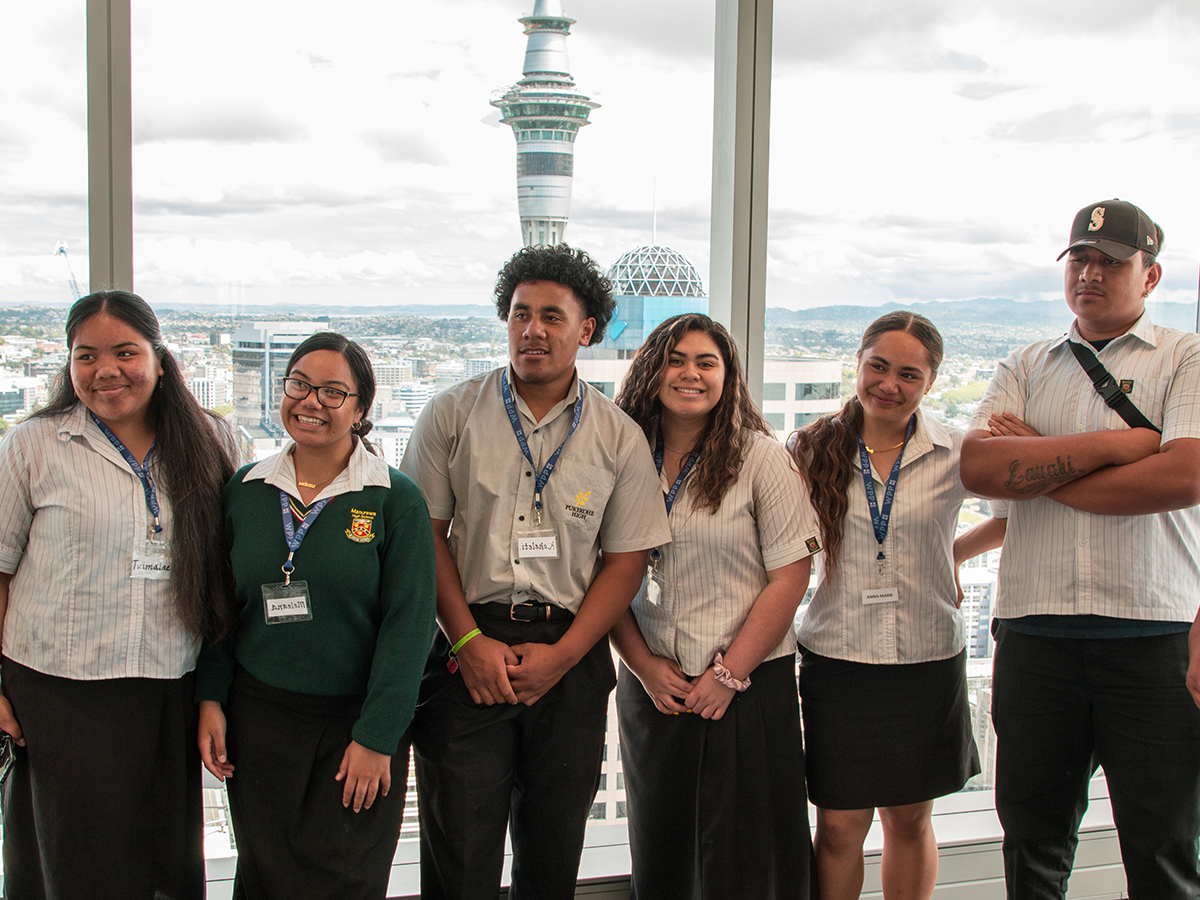 Students at PeopleForPeople's recent event
Students at PeopleForPeople's recent eventThe Rising Foundation, an organisation working with South Auckland youth, and agency WPP AUNZ were the other businesses that organised the event. Arnott-Neenee name-checks Kiwi music tech success stories like Serato and Melodics as future companies she would like to work with to put on similar days. It’s a daunting task to close the inequality gap, and PeopleForPeople’s encouraging work shows it has to be a two-way effort, no matter how difficult.
“To increase diversity in the industry, the industry has to do some of the work by recognising the institutional bias and racism that exists. And that's an uncomfortable conversation.”
She acknowledges NZ is progressive in other areas, but says it lags when it comes to speaking up against a lack of diversity.
“Our speak up culture is still on its own journey, and we’ll still get tone deaf moments. You see panel events that are saying that they care about diversity, but it's a whole panel of Pākehā males. There should be an equal amount of representation on panels as there is in the country.”
The future is now
One of her concerns is for Māori and Pacific people in jobs at risk of being displaced by the ongoing extension of automation in traditional manufacturing, and how unfair it is the people who will be most negatively impacted by this change aren’t aware it is going to happen.
“We need to ensure that they are in a place where they can be reskilled into new roles so that families are not negatively impacted. But whose responsibility is that?”
It appears Arnott-Nee has taken on that responsibility, but said she is mindful of the personal mental toll associated with her work. She deflects this strain by unconsciously drifting into the second person.
“As the marginalised living in a state of oppression, you're doing a lot of that coaching of the majority, and you're sharing your pain all the time, and explaining why it is the way it is from your lived experience, empathy, insights from your community understanding.”
She reverts to the first person to drive home her point.
“How can I ensure that I'm safeguarding myself? Because there's a lot of work to be done.”
Arnott-Neenee is an example of an NZ-based global success, back in-country and doing bold work to address decades of entrenched racism. The rest of the tech industry would do well to help reflect a more accurate representation of Aotearoa.
“Our goal is to get to where the vast majority of Māori and Pacific people feel they can be creators of technology. That's an ultimate vision statement – where the industry has actually changed.”


